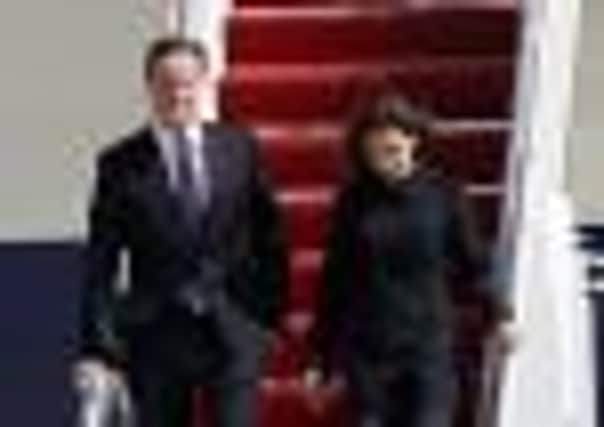Analysis: Cordial meeting a slam dunk for both despite differences


In the 50 years since, British prime ministers have often auditioned for the part of the American president’s best friend. David Cameron follows Harold Macmillan, James Callaghan, Margaret Thatcher and Tony Blair, all of whom made the transatlantic alliance central to their foreign policy. Proximity to power is the next best thing to wielding imperial influence over international affairs.
Cameron and Barack Obama call it a “unique and essential relationship” rather than “special”. Nowadays, many allies claim preferential treatment in their dealings with the United States. In Australia last November, the president Mr Obama emphasised the importance of the Asia-Pacific region to American interests. Nevertheless transatlantic historical, political and cultural ties remain strong. It is unsurprising that the two leaders are eager to express their mutual admiration. But beyond diplomatic courtesies,what did they talk about on Air Force One on their way to watch basketball in Ohio?
Advertisement
Hide AdAdvertisement
Hide AdThe US wants the UK as a military partner in its continuing war in Afghanistan. Nevertheless, both leaders appreciate the need to make progress on withdrawing their troops from the conflict. Obama is anxious to downscale the war in this critical election year and Cameron, needing to cut defence spending at home, also wants to bring an unpopular overseas commitment to an end. After both leaders gained credit for their diplomacy during the Arab Spring, the violence in Syria presents them with the continuing challenge of negotiating the complexities of Middle Eastern politics. They will condemn president Bashar Assad’s regime, arguing the need for change.
Cameron’s Washington visit comes a week after the White House meeting between Obama and Benjamin Netanyahu. Then the American president moderated the Israeli prime minister’s bellicose rhetoric against Iran in its pursuit of nuclear weapons. Now Obama will enlist Cameron’s commitment in enforcing sanctions against Tehran to influence its actions through diplomacy.
Other topics of mutual concern include the state of the global economy and the European debt problem that threatens a still-fragile US recovery from economic recession. International aid is an issue of mutual concern.
But the Prime Minister’s visit is not only an opportunity to discuss policy. It is also a chance to indulge in politics. Ideologically, the Conservative Cameron and the Democrat Obama may seem an unlikely pairing.
Yet in discussing global problems, both leaders can appear to be concerned with weightier matters than the forthcoming US presidential election or the UK coalition’s squabbles. The symbolism of the visit is important. The unique honour accorded to a foreign leader of a ride on the presidential plane will do Cameron’s self-image no harm. For Obama, taking his visitor to watch his favourite sport of basketball guarantees favourable media coverage. Meanwhile the Republicans battle for their party’s presidential nomination in an increasingly toxic primary campaign. A certain diplomatic success, for both Cameron and Obama this meeting is a “slam dunk”.
• Jon Roper is professor of American studies at Swansea University